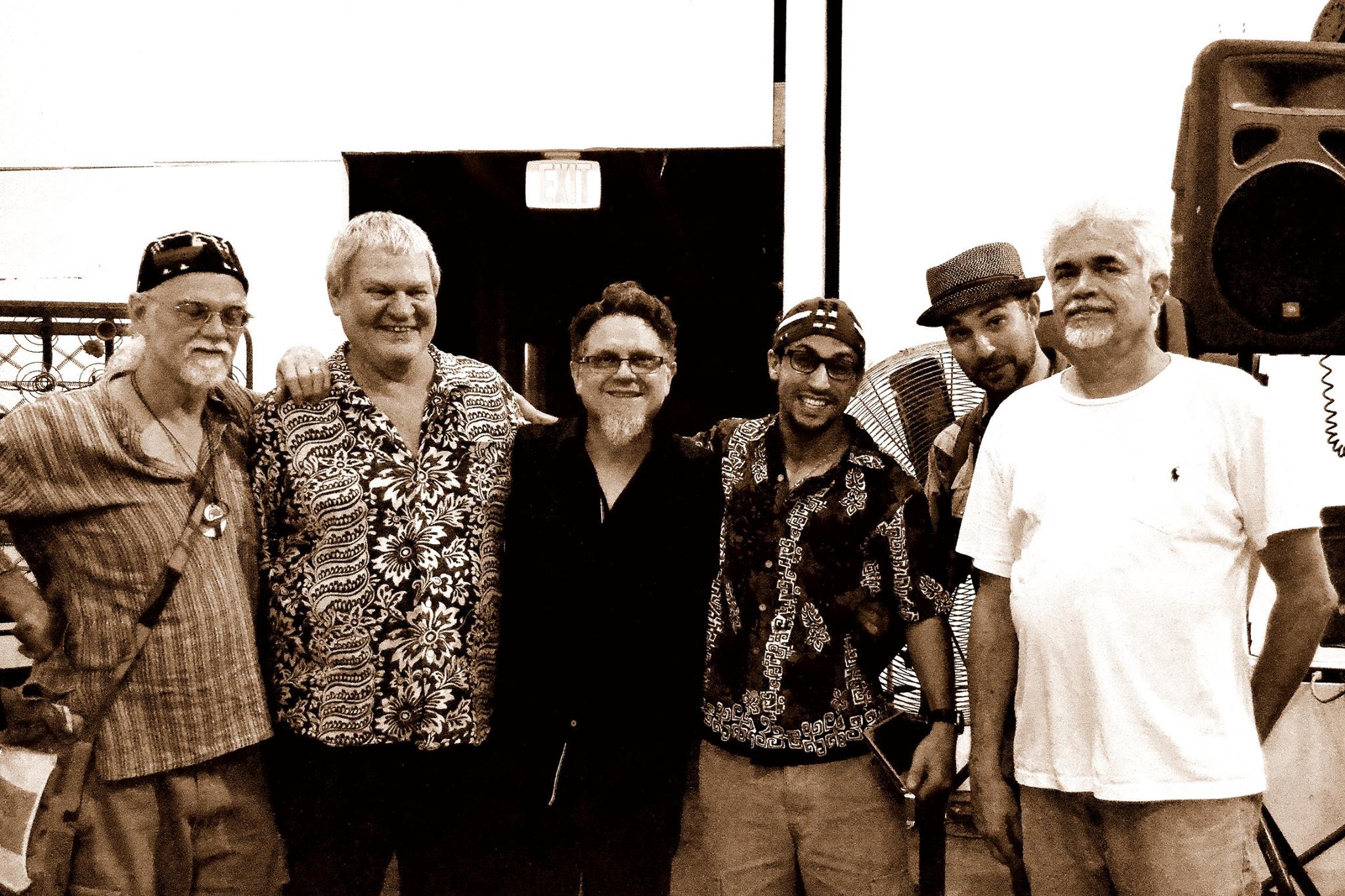R. A. Villanueva is the author of Reliquaria (University of Nebraska Press, 2014), winner of the Prairie Schooner Book Prize. A founding editor of Tongue: A Journal of Writing & Art, he currently lives in London, England.
Here in London the rain has paused and the sun, for once, feels keen to crash through the cloud banks which so often crown the city. I think now of two markers, one of geography and the other of time: Washington, D.C. is nearly 3,700 miles and an ocean west of me; and, since September has begun, “Asian American Literature Today” at the Library of Congress took place just over four months ago.
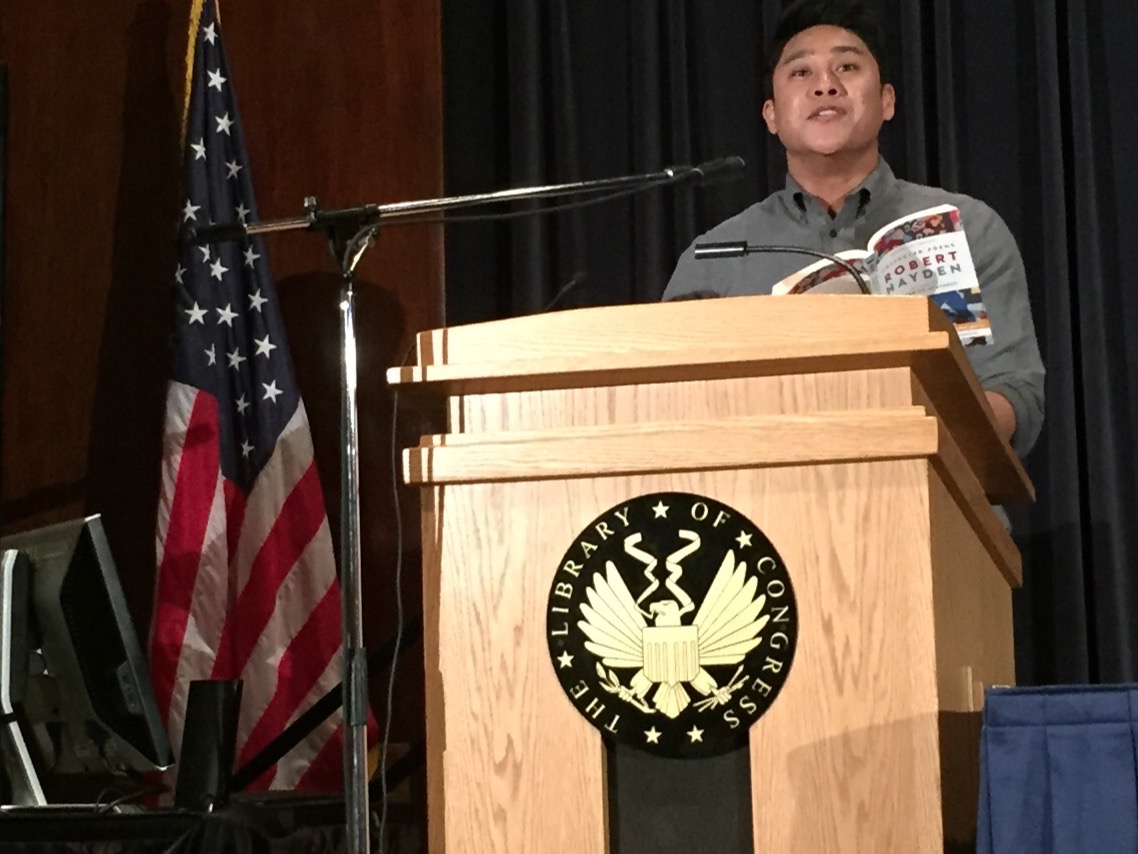
Such resonances are due in large part to the occasion for our gathering and who traveled (from across the U.S. and abroad) to be there. Cathy Linh Che, Eugenia Leigh, Ocean Vuong, and I were awarded The Asian American Literary Review’s inaugural A Lettre Fellowship and devoted the better part of last year each writing with/to established poets, allowing the dynamics of our curiosities, uncertainties, and fascinations drive our correspondences “by letters." Taken as a whole, the experience proved to be as emotional as it was formally innovative. These mentorships and convergences, after all, were happening in the shadow of our debut books and as each of us dealt with tectonic shifts in our lives apart from our writing.
This, by the way, was our methodology: after the AALR paired Cathy with Rick Barot, Eugenia with Julie Enzer, Ocean with Arthur Sze, and me with Ray Hsu, we were free to talk through the spring and fall of 2014. To build "community across literary generations," honesty and idiosyncrasy were encouraged. The exchange between Ocean and Arthur Sze, for instance, feels truly epistolary, with suites of poems and personal stories being traded. My back-and-forth with Ray Hsu seems more associative and roving in comparison, taking the shape of a series of handwritten reflections, Vimeo links and iPhone photos, Post-it Note collages and notebook scans.
Ultimately, the “Asian American Literature Today” event was meant to be the culmination of that project, an enactment of the AALR’s aspiration to represent “a space for all those who consider the designation 'Asian American' a fruitful starting point for artistic vision and community.”
Editor and Smithsonian APA Center Initiative coordinator Lawrence-Minh Bùi Davis brought that vision to life in remarkable ways. He invited partnerships with the Library of Congress Poetry and Literature Center, the University of Maryland Asian American Studies Program, and opened the room to the greater public. This event was also funded by the Readings & Workshops Program at Poets & Writers.
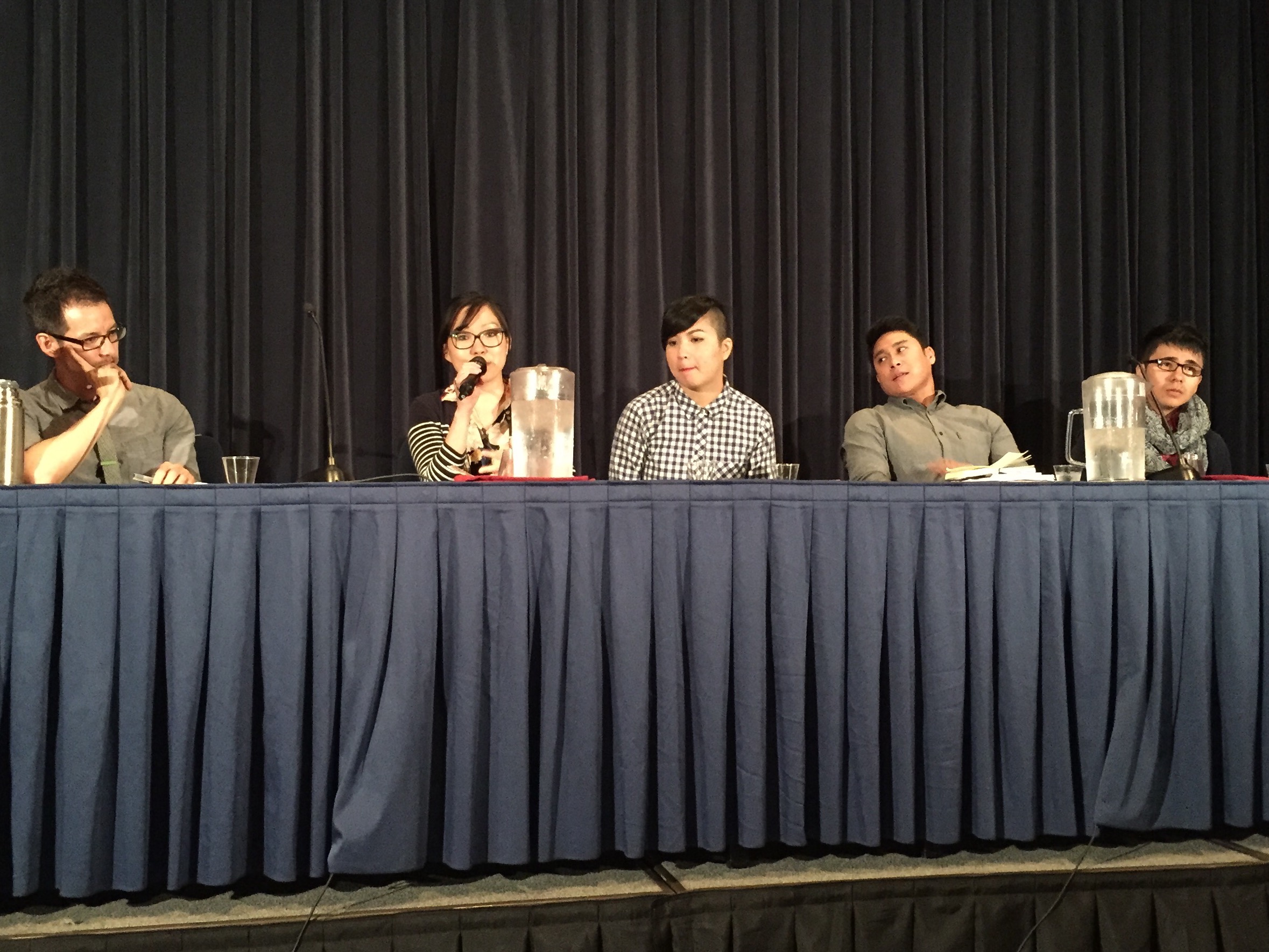
The result was a powerful crossing of voices and a widening of perspectives. Before our reading, we circled up chairs to host an informal conversation about the editorial process, distinctions between writing and publishing, academia and art. We discussed how Cathy, Eugenia, Ocean, and I arrived at this moment together as friends and as peers; we discussed how organizations such as Kundiman, Cave Canem, CantoMundo, VONA, and Poets & Writers support the development of work aware of—and activated by—a very real world beyond our poems.
Ai Weiwei asserts that “[t]he intention to separate art from politics is itself a very political intention.” When it finally came time to move to the lectern and later, to respond to questions about connections with other communities, other struggles, we hoped to trouble such separations. In sharing selections by African American writers along with our own poems and in affirming the work of #BlackPoetsSpeakOut, “Asian American Literature Today” embodied a heart-fraught awareness of these markers—one of geography and again, one of time: Baltimore is only forty miles north of Washington, D.C., and when we read on May 4 in the wake of protests for Freddie Gray, Jr. while a state of emergency remained in effect and the National Guard was still in the process of drawing down.
Which is to say, perhaps what makes contemporary Asian American literature so vital is its refusal to ignore history, to stay quiet, or to pledge allegiance to outworn expectations.
Photo: (top) R. A. Villaneuva. (bottom) Lawrence- Minh Bui Davis, Eugenia Leigh, Cathy Che, R. A. Villaneuva, Ocean Vuong.
Photo Credit: A'Lelia Bundles.
Support for Readings & Workshops in Washington, D.C. is provided by an endowment established with generous contributions from the Poets & Writers Board of Directors and others. Additional support comes from the Friends of Poets & Writers.
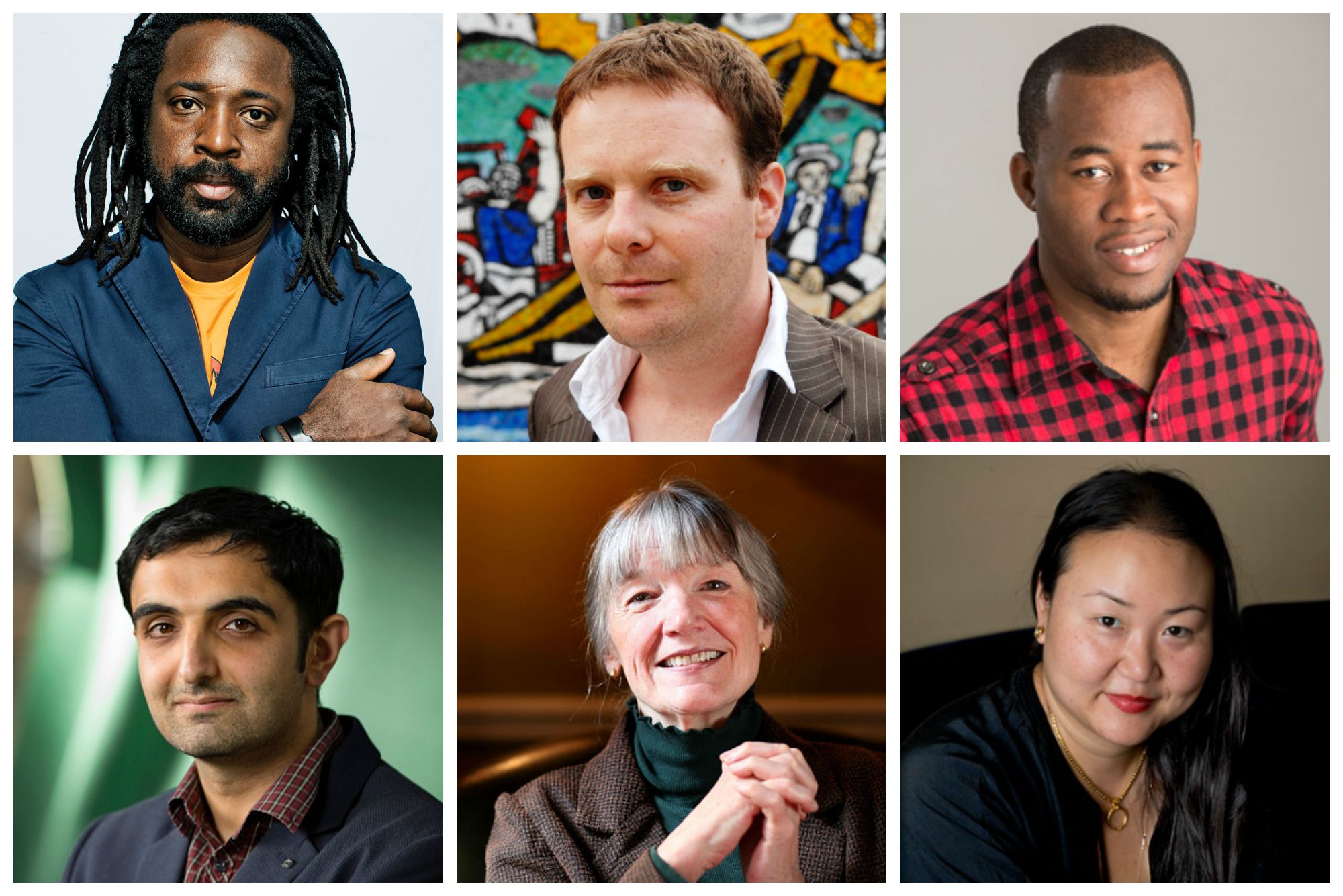








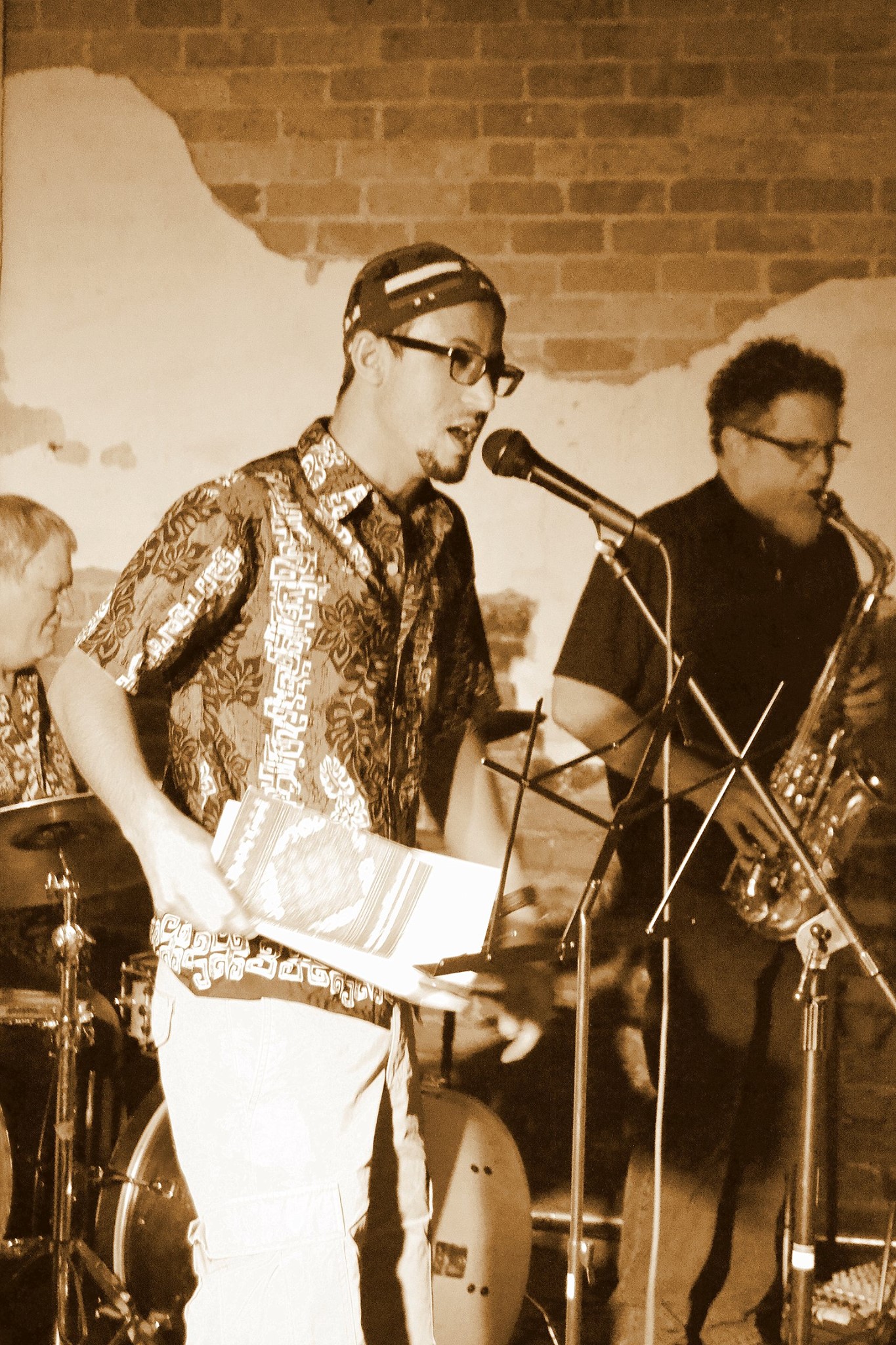 Poet and translator El Habib Louai, a resident of Agadir, Morocco, performed with a killer band of free jazz all-stars in a show produced by Surregional Press of Slidell, Louisiana. Poets & Writers partially funded the performance, which took place on July 31 at the Zeitgeist Theater in New Orleans.
Poet and translator El Habib Louai, a resident of Agadir, Morocco, performed with a killer band of free jazz all-stars in a show produced by Surregional Press of Slidell, Louisiana. Poets & Writers partially funded the performance, which took place on July 31 at the Zeitgeist Theater in New Orleans.